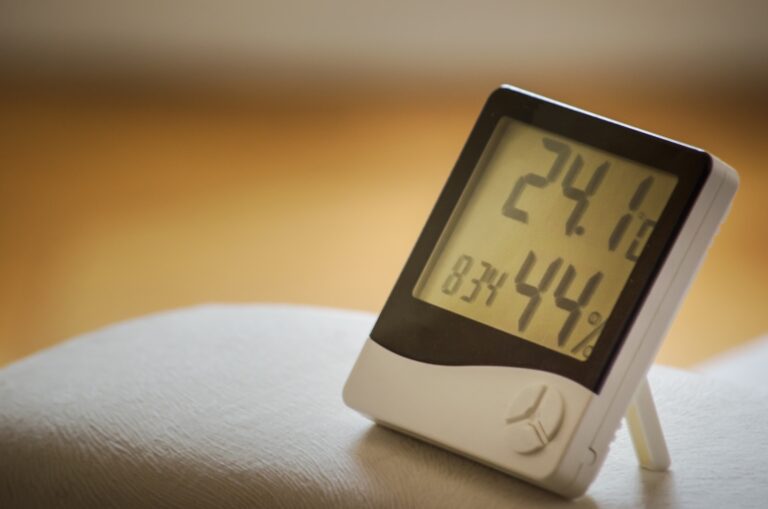Sitting in a toasty car seat might boost your relaxation during your commute, but it could also fry your sperm. Studies have shown that elevated testicular temperatures reduce sperm count, movement and shape.
One study found inverted U-shaped exposure-response relationships with air temperature and sperm quality, with thresholds at around 13 degrees C.
Age
As we age, our body temperature rises, and sperm formation becomes more sensitive. Sperm production occurs a full 3 degrees below body temperature, so even a small increase in temperature can negatively impact count and motility – These words are the work of the service specialists Sultry Sensations.
Overheating can also affect the genetic structure of sperm, which can have lasting negative consequences for offspring. This is because a father’s sperm is passed on via epigenetic mechanisms, meaning that the environment can impact future generations.
The study used an air temperature exposure model, estimating the effect of daily average and variation of the ambient air temperature on sperm quality during key perimenstrual phases (0-9, 10-14, 15-69, 70-90 days before semen ejaculation). Results showed that higher temperatures were associated with a lower concentration, and reduced total and progressive motility of sperm. The concentration of sperm with a morphological abnormality was also decreased.
For the analysis, the concentration and sperm motion parameters of semen samples were evaluated with a computer assisted sperm examination system (CASA, AndroVision, Fa. Merck Group, Darmstadt) at 3, 10, 15, and 30 min after semen collection. A total of 107 semen samples were collected. The proportion of living and dead sperm was determined by staining the sperm with methylene blue. Macroscopic evaluation of the samples was performed, and the pH of each sample was measured using a pH indicator paper.
Lifestyle
Several factors can affect how hot is too hot for sperm, including the environment and personal lifestyle choices. For example, a diet that is high in omega-3 fatty acids can help to improve sperm count and quality. Likewise, exposure to environmental toxins can also affect fertility rates. In addition, climate change can impact ecosystems and food chains, which can also negatively affect sperm health.
The ideal testicle temperature for healthy sperm production is about 2-4 degrees cooler than the body’s core temperature. The scrotal sac naturally descends and retracts to regulate this temperature. However, many things can increase the scrotal sac temperature, such as tight underwear (like briefs) or sitting for long periods of time in warm environments. Even the heat from a hot bath or shower can cause a temperature increase in the scrotal sac, which can have an adverse effect on sperm count and motility.
Studies have shown that the number of sperm that are normally shaped when exposed to high temperatures drops significantly. The scrotal temperature of the male is the main factor in this drop, but other things can contribute to this as well. These include having a late-descending testis, varicocele, obesity and heat-producing medical conditions like fevers. These factors can all lead to a lower sperm count and poor motility, which can have lasting effects on fertility.
Infections
Infection in sperm can be a serious issue and can cause fertility issues. Infection can occur if bacteria is introduced into the semen, causing it to become inflamed and affecting the production of sperm. Infection can also reduce sperm motility and prevent fertilization during intercourse. Men who have infection in sperm should seek treatment and ensure that their symptoms clear before trying to conceive. Treatment typically includes antibiotics, which must be taken for 2-4 weeks to ensure that the infection is completely cleared.
Sexually transmitted infections (STIs) such as chlamydia and gonorrhea are common causes of infection in sperm. These infections can lead to urethritis, orchitis, and epididymitis and can affect sperm motility by lowering sperm concentration and deteriorating sperm morphology. Genital herpes is another infection that can cause low sperm counts. Infection can also be caused by unprotected sex, certain medical conditions such as diabetes, and certain lifestyle factors such as smoking and excessive alcohol consumption.
A number of natural remedies and healthy living practices have been shown to prevent or improve sperm health. Regular exercise can increase blood flow to the reproductive organs, allowing them to properly function and flush out harmful bacteria. Taking probiotics, which are live bacteria and yeasts that are good for the body, can help balance the immune system and reduce the risk of infection.
Medical Conditions
The scrotum, where the testicles are located, needs to be about 3.5-7 degrees cooler than core body temperature for optimal sperm production. But medical conditions can cause the testicles to become overheated and affect sperm health. Men with prolonged fevers or illness are more likely to have problems with sperm count and motility.
Some medications can also impact sperm quality. These include the heartburn medication cimetidine (Tagamet), anticonvulsants like primidone and levothyroxine, antidiabetic drugs such as metformin and glipizide, some chemotherapy medications, and some herbal remedies, such as St. John’s wort and high doses of echinacea.
Another medical condition that can impact sperm health is spondylolisthesis, which is when the lower spine becomes misaligned and can cause pain in the testicles. Spondylolisthesis is associated with lower sperm counts and higher rates of anovulation, which can contribute to infertility.
While the best ways to protect sperm from too much heat are avoiding hot tubs, limiting exposure to hot water and using cool compresses on the testicles, men can also take steps to prevent an increase in scrotal temperature by wearing loose, breathable clothing, sitting with their legs apart when possible or in a non-cushioned seat, or driving for long periods while taking breaks. Lastly, eating a diet rich in vitamins D and E can help sperm stay healthy.
See Also:






